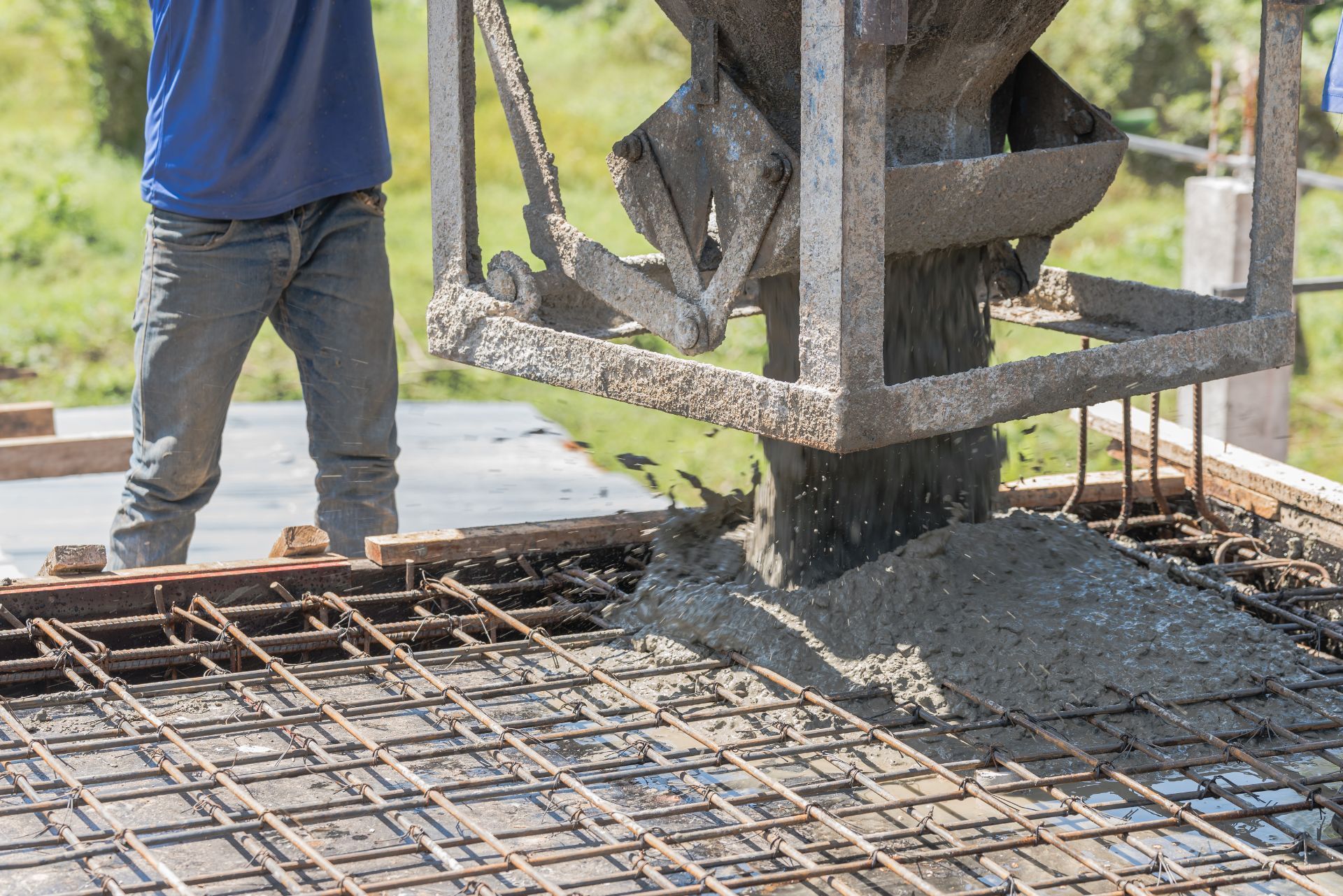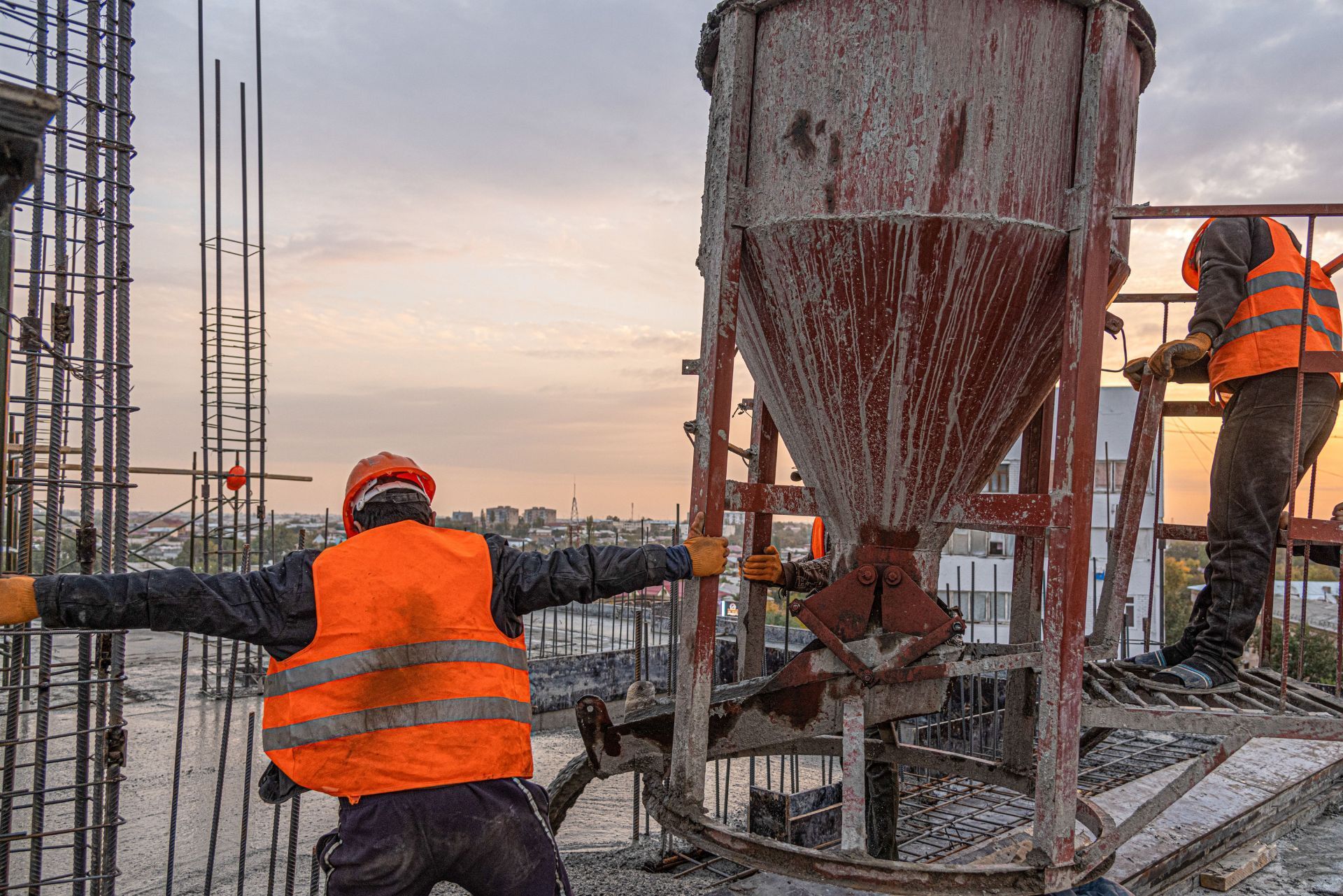New Mexico Concrete Contractor Insurance
8:30am - 5:00pm Mon-Fri
Will Reply in 15min*
Top 3 Recommended Policies
Index
Understanding the Concrete Contracting Industry in New Mexico
Key Insurance Requirements for New Mexico Concrete Contractors
Workers’ Compensation and Experience Modification Rates (EMRs)
Risk Management: The Key to Lower Insurance Costs
Choosing the Right Insurance Coverage for Your Concrete Contracting Business
Concrete contracting in New Mexico is a vital part of the state’s construction industry, which itself is valued at over $8.5 billion annually. However, the concrete sector faces unique challenges, including a projected decline in industry size and evolving insurance requirements. For concrete contractors, understanding insurance options, regulatory mandates, and risk management strategies is crucial to maintaining a profitable and compliant business.
This comprehensive guide explores everything concrete contractors in New Mexico need to know about insurance—from the state’s licensing requirements to the latest changes in workers’ compensation ratings and practical tips for reducing insurance costs. Whether you’re a seasoned contractor or new to the industry, this article will help you navigate the complex insurance landscape with confidence.
For more detailed industry insights, you can visit IBISWorld’s New Mexico concrete contractors report.
Understanding the Concrete Contracting Industry in New Mexico
The concrete contracting industry in New Mexico is currently experiencing a gradual decline, with projections indicating an annualized reduction to a market size of approximately $267.7 million by 2025. This trend reflects broader economic shifts and changing construction demands within the state.
Despite this contraction, the overall construction industry in New Mexico continues to grow, with employment rising by 4.8%. This suggests that while concrete contractors face challenges, opportunities remain within the wider construction ecosystem, especially for those who adapt to market changes and maintain strong operational practices.
Concrete contractors must stay informed about these market dynamics as they directly influence insurance risk profiles and premium costs. Contractors operating in a shrinking market may find insurance providers more cautious, emphasizing the importance of robust risk management.
In addition to adapting to economic shifts, concrete contractors in New Mexico are increasingly focusing on sustainable practices to meet the demands of environmentally conscious clients. The use of recycled materials and eco-friendly concrete mixes is becoming more prevalent, allowing contractors to not only reduce their environmental footprint but also to differentiate themselves in a competitive market. This shift towards sustainability is not just a trend; it is becoming a necessity as regulations tighten and public awareness of climate issues grows.
Furthermore, technological advancements are reshaping the concrete contracting landscape. Innovations such as 3D printing and advanced project management software are enhancing efficiency and precision in concrete work. Contractors who embrace these technologies can streamline their operations, reduce waste, and improve overall project outcomes. As the industry evolves, those who invest in training and development to harness these tools will likely find themselves at a competitive advantage, positioning themselves for success even in a challenging market environment.

Key Insurance Requirements for New Mexico Concrete Contractors
In New Mexico, contractors must meet several regulatory requirements to operate legally and protect their businesses. One critical requirement is the $10,000 surety bond mandated for most contractor licenses. This bond acts as a financial guarantee that contractors will comply with state laws and contractual obligations. It serves as a safeguard for clients, ensuring that they have a recourse in case the contractor fails to fulfill their contractual duties, thereby fostering trust and reliability in the construction industry.
The Construction Industries Division offers over 100 license classifications, reflecting the diverse specialties within the construction sector. Concrete contractors must ensure they hold the appropriate license classification to avoid penalties and ensure compliance. This classification not only validates their expertise but also signifies their commitment to maintaining industry standards and best practices, which is crucial in a state where the construction landscape is continually evolving due to new technologies and methods.
In addition to bonding, insurance is a cornerstone of contractor compliance. General liability insurance, workers’ compensation, and commercial auto insurance are typically required. Workers’ compensation insurance, in particular, is vital given the physical risks associated with concrete work. The nature of concrete contracting involves heavy machinery and hazardous materials, making it essential for contractors to protect their workforce and themselves from potential accidents that could lead to significant financial liabilities.
Moreover, having the right
insurance coverage can also enhance a contractor's credibility when bidding for projects. Clients often prefer to work with insured contractors, as it provides an additional layer of security. This not only helps in securing contracts but also in establishing long-term relationships with clients who value safety and professionalism. For a detailed overview of New Mexico’s contractor licensing and insurance requirements,
Contractors Choice Agency provides valuable resources tailored to local contractors. These resources can guide contractors in navigating the complexities of compliance while ensuring they are adequately protected against unforeseen events.
Workers’ Compensation and Experience Modification Rates (EMRs)
One of the most significant insurance considerations for concrete contractors in New Mexico is workers’ compensation insurance. This coverage protects employees injured on the job and shields contractors from costly lawsuits. It serves as a financial safety net, ensuring that injured workers receive medical care and compensation for lost wages, which is essential in an industry where physical labor is prevalent and injuries can occur.
Starting September 1, 2025, the Workers’ Compensation Insurance Rating Bureau (WCIRB) will update the Expected Loss Rate (ELR), which directly affects contractors’ Experience Modification Rates (EMRs). EMRs are crucial because they determine how much a contractor pays for workers’ compensation insurance based on their historical claims experience. Understanding the intricacies of EMRs can empower contractors to make informed decisions about their safety practices and insurance strategies.
A lower EMR can translate into substantial premium savings, while a higher EMR increases costs. Contractors with a clean safety record and fewer claims benefit from better rates, which incentivizes strong workplace safety programs. Implementing comprehensive training sessions, regular safety audits, and promoting a culture of safety can significantly impact a contractor's EMR, leading to long-term financial benefits.
Moreover, the implications of these changes extend beyond just financial considerations. A strong emphasis on safety not only reduces insurance costs but also enhances employee morale and productivity. When workers feel safe and valued, they are more likely to perform at their best, which can lead to higher quality work and increased client satisfaction. This creates a positive feedback loop where safety and performance reinforce each other, ultimately benefiting the contractor’s reputation in the competitive market.
More information about these upcoming changes can be found at
Rancho Mesa Insurance Services, Inc., which provides updates on workers’ compensation insurance developments. Staying informed about these changes is vital for contractors to navigate the evolving landscape of workers’ compensation effectively and to maintain a competitive edge in the industry.
Risk Management: The Key to Lower Insurance Costs
Implementing comprehensive risk management programs is one of the most effective ways concrete contractors can reduce insurance costs and improve workplace safety. According to industry experts, contractors who adopt such programs see an average 35% reduction in workplace incidents and a 40% decrease in insurance claims.
These improvements not only protect workers but also enhance a contractor’s reputation and financial stability. Insurance providers reward contractors with strong safety records by offering premium discounts, sometimes as high as 28% compared to those with higher claims histories.
Risk management strategies include regular safety training, proper use of personal protective equipment, maintaining equipment, and thorough job site inspections. These proactive measures reduce the likelihood of accidents and claims, directly impacting insurance premiums.
In addition to the aforementioned strategies, fostering a culture of safety within the organization can significantly contribute to risk reduction. This involves engaging employees at all levels in safety discussions, encouraging them to report potential hazards, and recognizing their contributions to maintaining a safe work environment. By empowering workers to take ownership of safety practices, contractors can create a more vigilant workforce that actively participates in minimizing risks.
Furthermore, leveraging technology can enhance risk management efforts. Tools such as mobile safety applications and wearable safety devices provide real-time data on job site conditions and worker safety. These innovations not only streamline the reporting process but also allow contractors to identify trends and areas for improvement, ultimately leading to more informed decision-making and better risk mitigation strategies.
For a comprehensive guide on concrete contractor insurance and risk management,
CivInnovate offers valuable insights tailored to the concrete contracting industry.

Choosing the Right Insurance Coverage for Your Concrete Contracting Business
Concrete contractors must carefully select insurance policies that address their specific risks. General liability insurance protects against third-party claims for bodily injury or property damage, which are common in construction environments. This type of coverage is particularly crucial in a field where heavy machinery and materials are frequently in use, as accidents can happen unexpectedly, leading to significant financial repercussions.
Workers’ compensation insurance is mandatory in New Mexico and covers medical expenses and lost wages for employees injured on the job. This coverage not only provides peace of mind for business owners but also fosters a safer workplace culture, as employees are more likely to report hazards knowing they are protected. Contractors should also consider commercial auto insurance if vehicles are used for business purposes and professional liability insurance for design or consulting services. These policies can shield contractors from the financial fallout of accidents or errors that could otherwise jeopardize their business operations.
Given the specialized nature of concrete work, some contractors may also benefit from equipment insurance to protect expensive machinery and tools from theft or damage. This is particularly relevant in an industry where the cost of equipment can be substantial, and downtime due to equipment failure can lead to lost contracts and revenue. Additionally, contractors should evaluate the need for pollution liability insurance, especially if their work involves the use of chemicals or materials that could potentially harm the environment. Such coverage can safeguard against claims related to environmental damage, which is increasingly becoming a concern in construction projects.
Working with an insurance agent experienced in New Mexico’s construction industry can help contractors tailor coverage to their unique needs, ensuring adequate protection without unnecessary costs. An agent can provide insights into local regulations and industry standards, helping contractors navigate the complexities of insurance requirements. Furthermore, they can assist in identifying potential risks specific to the contractor's projects, enabling the business owner to make informed decisions about the types and amounts of coverage needed. This proactive approach not only enhances the contractor's risk management strategy but also contributes to the overall sustainability and growth of the business.
Conclusion: Staying Ahead in a Changing Market
The concrete contracting industry in New Mexico is navigating a period of change, with market contraction and evolving insurance regulations shaping the business landscape. Contractors who prioritize compliance, invest in risk management, and maintain clean safety records will be best positioned to control insurance costs and sustain profitability.
Understanding the state’s surety bond requirements, keeping abreast of workers’ compensation rating updates, and choosing the right insurance coverage are all essential steps. By doing so, concrete contractors can protect their businesses, support their workforce, and thrive even in a competitive market.
For ongoing updates and resources tailored to New Mexico contractors,
Contractors Choice Agency remains a trusted source of information.
Request a Quote
Speak with a Concrete Contractor Insurance specialist today!
Get started today!
If you are preparing to start a valet service at your business, be sure to consider safety issues, legal requirements, and additional coverage options so that you can find the best possible coverage for your budget and needs.
Prefer to speak with an agent now?






